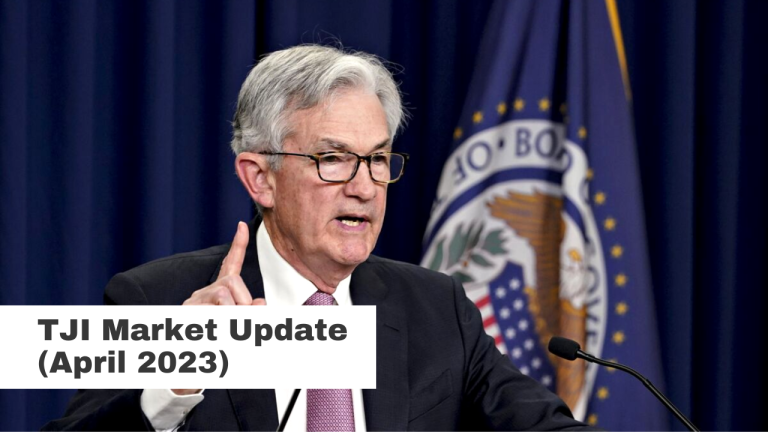
Hazelle
in Monday Musings · 6 min read
The problem with new year resolutions
As we reach the end of every year, we have often been asked what new year resolutions we have for the new year. The truth is we do not set any new resolutions, just for the sole purpose of a new year. If something is important enough, we believe in doing it immediately. Why would anyone who is serious about something, would want to procrastinate and wait for the next new year to do so? If one needs to set new goals using the new year as an excuse, then our advice is simply don’t bother.
Find out what you WANT to do, not what you should do
Oftentimes, we may also see some of our friends making resolutions based on what they think they should be doing, rather than what they really want to be doing. The goal is probably made because they feel pressured to do so and as a result, it is going to be less likely to be accomplished. If the goal lacks personal relevance, they will never go about doing it.
Our advice on this would be to forget about what you or other people think you ought to be doing and look at what you really want. Vote for the action that you want to take in order to be the person you want to become. This is what James Clear shared in his book Atomic Habits. Atomic Habits give good practical tips on how to cultivate small and simple habits that allow us to get better overtime. What looks like tiny changes will eventually lead to remarkable outcomes over the long term.
Know the ‘WHY’ behind every resolution
To achieve our resolution, we must have a purpose or belief in order for us to take action. Another book that you might want to read up on is “Start With Why,” by Simon Sinek. In his book, he shares that we need to communicate to others or ourselves using the golden circle. Using ‘Why’, ‘How’ and ‘What’. People don’t buy ‘WHAT’ you do; they buy ‘WHY’ you do it.
Similarly when we do our own self-talk, you cannot just tell yourself that you want to be wealthy. You want to be successful. You must explain to yourself, for example, why it is important that you are financially free. For example, it will mean that you can stop doing work that you find no meaning in, or that you can have the freedom to do what you love, instead of what you have to.
Accountability is key to achieving the desired outcome
However, setting your goals is just the start. It is important to have accountability. Both winners and losers have the same goals. At the end of the day it is about being able to keep ourselves in check regularly. You must be able to measure the outcomes to see if your actions are leading you to it. The desired outcomes are in fact a lagging measure of the correct habits being put in place.
Reflect on what you learn over the last one year
So as we mention, instead of only setting resolutions as we approach the end of the year, resolutions should be set along the way as you progress each hurdle. In fact, as we approach the end of the year, we find it more purposeful to be spending the time to reflect on what transpired during the year itself. What were the positives and negatives to take away from which are still fresh in our minds?
You see, in order to advance further in anything you do, you need to have what it takes to reach that far. All these skills and knowledge that you need comes from the valuable experiences you had. Spending time to do some reflection to compile the takeaways will definitely be more worthwhile. For investors in particular, it would be good to have a review and heart-to-heart talk with oneself. We can ask ourselves questions like, “What did I like or not like about what I did this year?
Let us show you some examples of how you can go about doing it.
China stock markets as an example
For investors who felt that the China markets offered compelling value and bought into the China tech stocks but are still facing paper losses, there are very differing sentiments on the ground now. While there are investors who acknowledge that this might be a long term play, some others were expecting it to recover within a few weeks or a few months.
If you are part of those who are getting frustrated by the slow recovery, ask yourself this question. Is the root of your current frustrations a result of Mr Xi or is it because you may have unrealistic expectations of the way the stock market should work and are seeking instant gratification?
Whether it is US, China or Singapore stocks, a fundamentally sound stock that is plagued by negative sentiment can remain underpriced for several quarters or sometimes years. If investors continue to have such expectations, they will continue to remain disappointed with many other good stocks from other countries as well. In the US, look at what happened to Mastercard and Facebook and back home in Singapore, some of the strong REITs such as Mapletree Commercial Trust and Ascendas REIT. Just because a good stock doesn’t have a really good year doesn’t necessarily mean that its fundamentals have changed and that you should be worried.
There are some investors who would love to do stock picking themselves in search of higher returns. But when faced with the higher volatility and underperformance, they may be in for a rude awakening. Perhaps they may be more suited to just stick to investing in an ETF instead.
Another example: Mindset for a new investor
Say for example, you have just started investing this year. You took an excellent first step. You sought out information. With these first steps, you have a curiosity that has the potential to improve your investing performance.
But shortly after, you may encounter a process like what happens when your car breaks down. You’re stuck in the middle of nowhere. You do not know what is wrong with it and you call a tow truck. They manage to get your car running back up. But you have no idea what they did to do so. Soon enough, your car breaks down again. And the cycle repeats.
You have to start to learn to ask better and more specific questions rather than hoping for less fixes. Would you tell yourself your new year goal is to have less breakdown, or to probe further and understand the root of the problem exactly? But if you did not think or reflect further on what had happened, you would probably stop at the goal of ‘having less breakdown’.
Back to investing, the same applies. You can try to read up some books to troubleshoot or to hire someone to train you to be able to do so independently. Either way, it is a better approach than hoping that the problem does not arise again.
These are just some quick examples and if you would like to know of other investing-related reflections and takeaways in 2021, check out our video sharing on the 5 Lessons To Take Away From Stock Markets In 2021.
The same applies to non-investing related matters in your life. Spend some time to reflect on what you have learnt and took away from 2021. You may be able to find some rewarding lessons that can bring you further in your endeavour.



About Hazelle
Chief trainer of The Moneyball Investors Playbook program and founder of The Joyful Investors, a financial education firm that seeks to help avid investors learn to invest better and make the journey a joyful one. I graduated with a first class honors in Bachelor of Accountancy from Nanyang Technological University (NTU) and started my auditing career in one of the Big Four. I believe that once we know how to build our wealth sustainably, we can then live our best lives ever.
· · ·
Have you enjoyed this article? We’d be grateful if you would share this useful content to your friends who may benefit from it as well.




Nice insights. Chanced upon your article only now in February. But I guess it’s never too late to learn.
Thanks! Yeah learning never stops. 🔥